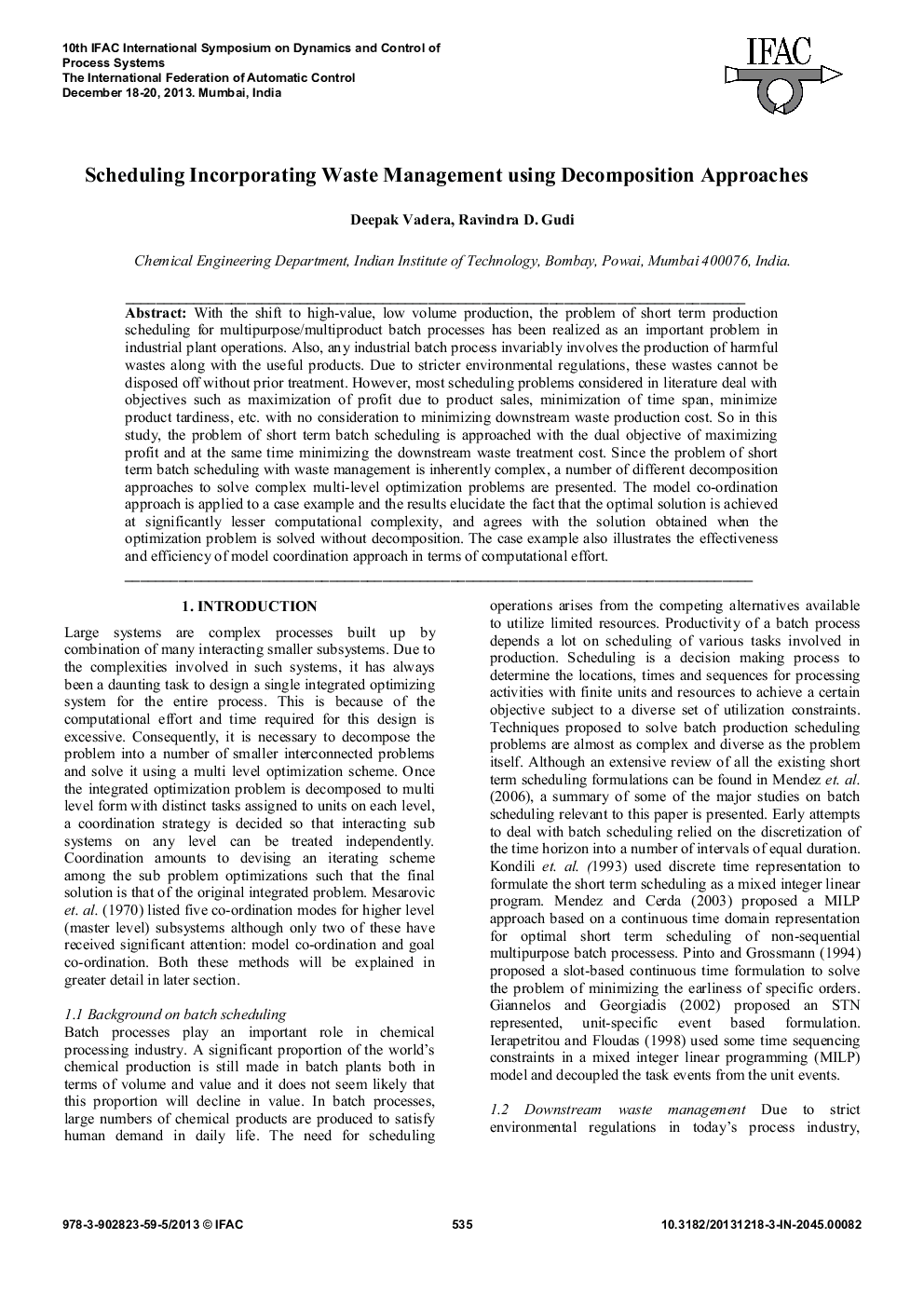| Article ID | Journal | Published Year | Pages | File Type |
|---|---|---|---|---|
| 713716 | IFAC Proceedings Volumes | 2013 | 6 Pages |
With the shift to high-value, low volume production, the problem of short term production scheduling for multipurpose/multiproduct batch processes has been realized as an important problem in industrial plant operations. Also, any industrial batch process invariably involves the production of harmful wastes along with the useful products. Due to stricter environmental regulations, these wastes cannot be disposed off without prior treatment. However, most scheduling problems considered in literature deal with objectives such as maximization of profit due to product sales, minimization of time span, minimize product tardiness, etc. with no consideration to minimizing downstream waste production cost. So in this study, the problem of short term batch scheduling is approached with the dual objective of maximizing profit and at the same time minimizing the downstream waste treatment cost. Since the problem of short term batch scheduling with waste management is inherently complex, a number of different decomposition approaches to solve complex multi-level optimization problems are presented. The model co-ordination approach is applied to a case example and the results elucidate the fact that the optimal solution is achieved at significantly lesser computational complexity, and agrees with the solution obtained when the optimization problem is solved without decomposition. The case example also illustrates the effectiveness and efficiency of model coordination approach in terms of computational effort.
